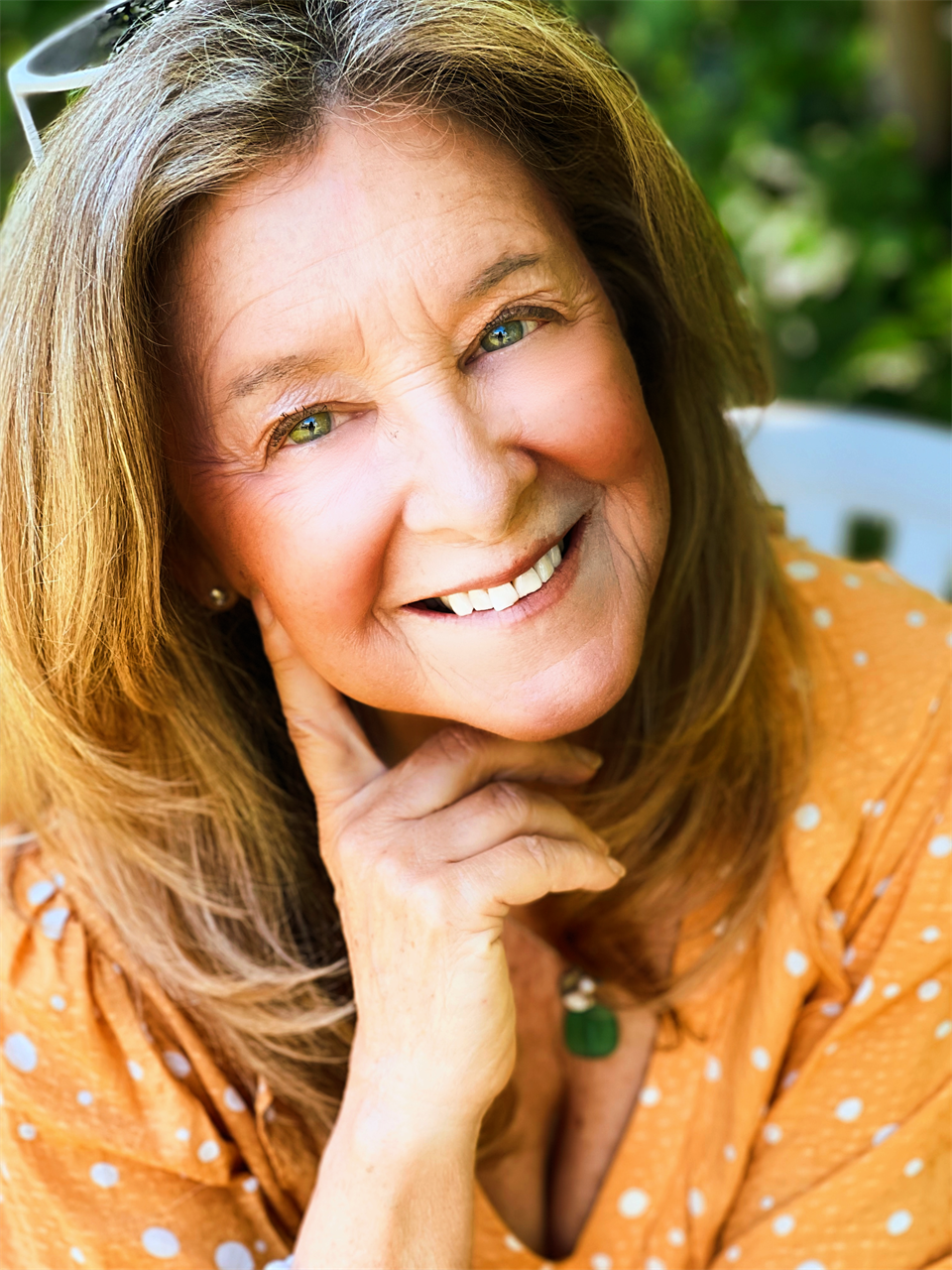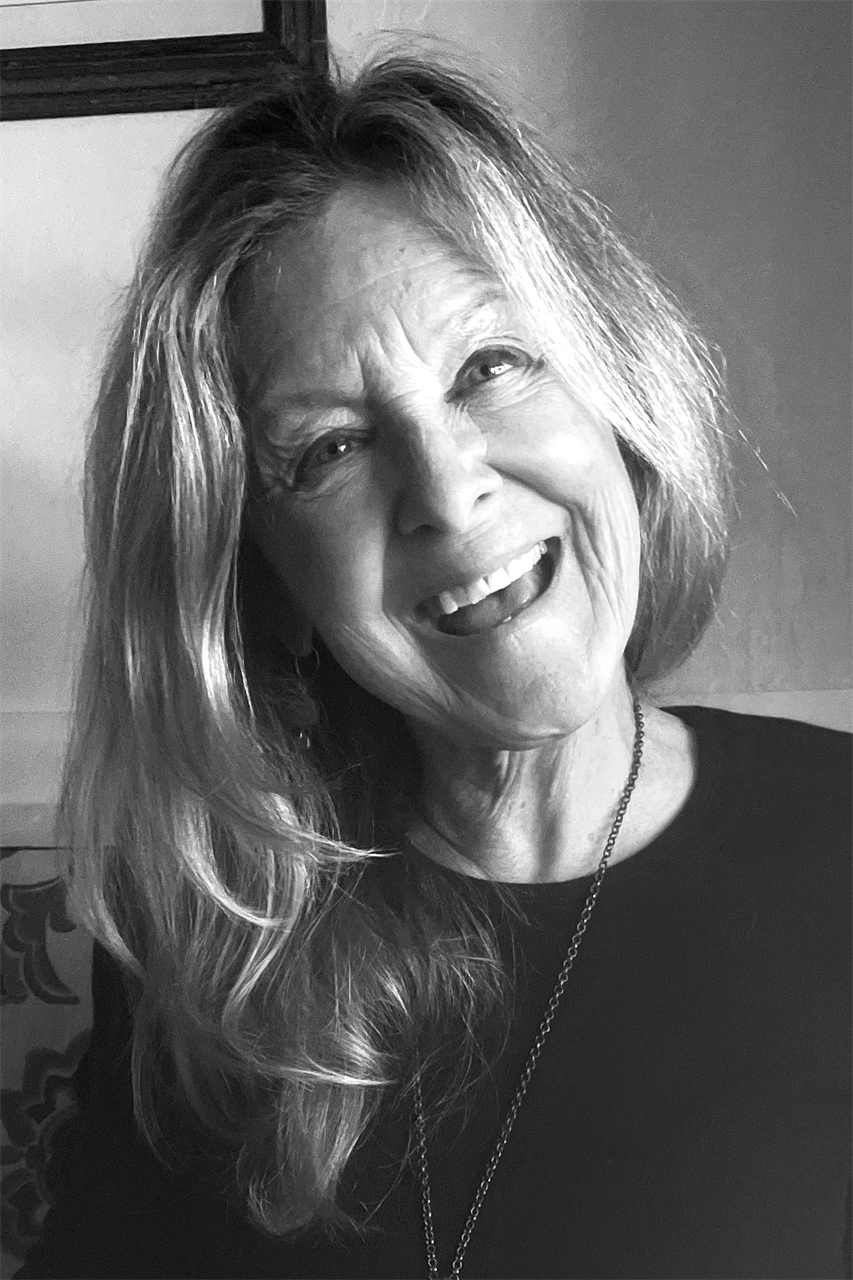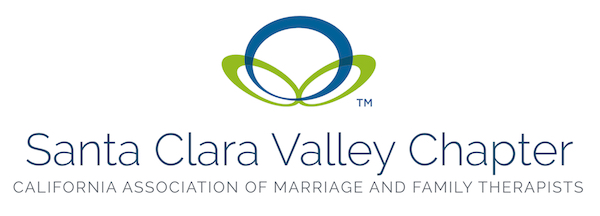 Back to Summer 2023 Newsletter
Back to Summer 2023 Newsletter
Interview with Michele Barbic and Liliana Ramos
Michele: I’m a marriage and family therapist. I always knew I was going to be a therapist, but I didn’t go to grad school, JFK, until later in life. The story about being in graduate school in my 50’s is interesting. I told my professor, ‘I’m not going to be an LMFT until I’m in my 60’s. Is this crazy?” The professor stated, ‘Michele, you are going to be 60 anyway. Wouldn’t you rather be doing something that you are passionate about?’ That has served me through the rest of my life. I think it has served clients as well. We are never too old to pursue our dreams and our passions. I am 72, a wife of 44 years, and have one son and two grandchildren. My experience in those roles comes into my sessions. Our experiences support what our clients are going through, especially the aging and grieving. I work with clients on how to age gracefully: in the course of the last 14 years, I have studied Hakomi and Sex-Positive therapy, Transpersonal therapy, IFS, and trauma. My newest passion is Psychedelic-Assisted Therapy, especially for aging, chronically ill, and end-of-life grieving.
I see myself more as a guide than a therapist, especially with the work I do with aging and grief. It’s a different therapy method than when someone comes in with a diagnosis. Both grief and aging carry spirituality. To delve into those two topics, we must delve into what we believe in with grief and aging. I bring in different therapeutic modalities such as IFS, Hakomi, and somatic work. In addition, I hold hope for my clients when they can’t hold hope themselves.
Liliana: Jumping off from what you said, because of how society has shifted its perspective towards mental health, some older adults might not have dealt with their trauma as children. How do you deal with that?
Michele: As people come in to work on their grief they often are able to go to a deeper understanding of themselves because they are so raw. One intricacy of working with older clients is that they were brought up in a generation where you only went to a therapist if you had severe mental health illness. In addition, language and experiences have changed for mental health, sex, and gender. Often older adults are misunderstood because they do not have the currently accepted words when talking about sex, gender, race, and culture. They don’t mean to be hurtful or disrespectful.
A second intricacy is that the word older is relational. They’re older than me. If you are 50 and see a 60-year-old, they’re an older person. There is often no acceptance of being old. Also, there is a difference between chronological and biological age. Biology is based on how well we take care of ourselves. How vibrant are we. I know a 90-year-old extremely active psychiatrist who seems biologically 60 and walks 2- 4 miles a day. When someone comes to therapy, you see their age, you can’t assume how an older adult will appear in your office. Older people can be 65-85 and still be vibrant. There’s a book by Louise Aronson called Elderhood: Redefining aging, transforming medicine, reimagining life, that every therapist should read about how even our medication needs change as we get older. I encourage my clients to work with their doctors and I encourage all therapists to work with the doctors and psychiatrists of their older adult clients. That is important with all clients, but it’s even more important for older clients.
Another intricacy is that therapists working with older adults must have done their own work. If we still have a fear of aging and of death that’s going to come across to our clients. We get very little education in grad school about aging and grief.
Liliana: In summary, the intricacies are language, spirituality, chronological/biological, medical issues, and our own work.
Michele: Another part is that older clients might be on anti-depressants. Often, they do not need anti-depressants: instead, they need to process their grief. As an older adult, you have had losses: Lost relationships, career, connection with people, health, and youth. Grief underlies many mental health issues. I search where the loss is in their life. Whenever we find a loss, I wonder if this is depression or grief and ask the client, ‘Were you depressed as a younger person?’ If they say no, can explore the grief they may be experiencing.
Liliana: How do you incorporate grief work when they have depression? Any other ways that you incorporate grief?
Michele: When I worked at Hospice I noticed that older adults often had unprocessed grief from the past because they weren’t inclined to seek a therapist for grief therapy. An example was a 95-year-old woman who was grieving for her husband, aged 100. She could not get over it: Several sessions into it, she revealed that she had a son who died at three years old. She didn’t dwell on the death because she had two other young children. She didn’t have the time to grieve and address the loss of her child. It was amazing: She was able to cry and talk about how that helped! When she processed it in session, she was a different person. She had let go of something she had been carrying for years. So as we age and dig deeper, we discover more profound loss and trauma.
Liliana: I want to capture why you think this is important work.
Michele: We all have losses and we are all going to die. Our society doesn’t talk about it. In indigenous cultures, the elders were elders of the community and wise ones. Our society is going in the opposite direction: We don’t want to deal with older people. We don’t want to look at our older people. In fact, I was deadly scared of death until my life-changing experience with my mom’s death. I don’t know how I would have been a therapist if I had not dealt with my own fear of death. Death and aging are so important. We approach it as if, if we ignore it, it will go away. As for myself, I’m not totally free of fear of death, but I thank my clients and my own work for getting me closer. I think that’s a really important message. Since I got involved in grief work, I have a desire to bring it to the forefront. A friend of mine and I organized a couple of Death Cafes: we advertised that we were going to meet for 2 hours to talk about death. People wanted to talk about their own thoughts of death or the death of someone in their life. People want to talk about it, but there is no venue for it.
Liliana: How do you bring up death and how do you talk to people about death?
Michele: What is your belief? What are your emotions around dying? When you ask about this and talk about death, people want to talk about it, especially older people who are sick. Ask ‘Are you afraid of dying?’ ‘What is it like to be in your place right now with your illness?’ For people coming in with anticipatory grief encourage them to ask questions: Are you afraid of death Mom?’ Most recipients of that question are grateful.
Liliana: To capture two things that you said: you knew that you wanted to be a therapist when you were real young and that you can talk about death because you worked through that. How did you work through that so that you can guide your clients? Are these two questions connected?
Michele: I was an only child, shy, and a good listener. As a child, the kids in the neighborhood would always come to me with their problems because I would listen to them. My mom would tell me, ‘Michele, you always have friends with problems.’ I would say, ‘No, everyone has problems. It’s just that I listen to them.’ My mom always pushed me and encouraged me with this ability to connect with people. When she was in her last days, the hospice nurse said to me that this was going to be an incredible experience. I was upset to hear that this was going to be an incredible experience when my mom was dying, being afraid of death and not knowing how to handle all this. The nurse opened the door for me to something I was not anticipating.
I transitioned my mom. It was like I was birthing my mom into a new life. It went from giving her spoonful of water, rubbing her head, and doing things for a newborn, except I was doing this as she was going out. The nurse told me that my mom was passing: I held my mom and all of a sudden, I felt this loving energy come out of the top of her head. The whole room was filled with her love energy. It felt like her energy was going into my pores. It was like I was consuming my mom’s love. My husband came into the room. He said, ‘Michele, there is so much love in this room. Then my son came in and said the same thing. I get emotional just recalling it as it was 13 years ago. It totally changed my outlook on death because she didn’t die: Her energy and love remained. That changed it completely for me.
My mom’s body is buried in the ground but I absorbed her. As I was caregiving with my mom, she encouraged me to go back to school. With my experience with grief, I studied and read more. I did my practicum at Hospice. If you had told me 15 years ago that I was going to be a grief therapist, I would have told you that you were crazy because I was afraid of death. Yet, here I am. That experience was the biggest shift for me. I now run grief groups or have long-term grief clients that have stayed with me, and shared with me what they’re going through and the transpersonal experiences that happen around grief. People come in and say ‘Don’t think I’m crazy, but this crazy thing happened’: How can you deny it? One hundred years ago, it was normal that deceased Grandpa showed up last night. We really need to look at what modern technology and medicine have done to this area of our life.
Liliana: Thank you for that.
Michele: There is a quote from Carl Jung* that says “Embrace your grief. For there your soul will grow.” I approach clients with the wonder of the gift of grief. I don’t do it initially because they’ll get upset with me, but later, we look at how their life has changed because of the grief they experienced.
Liliana: In working with the older adult population, is grief the most prevalent topic that you run into.
Michele: Yes, grief is the most prevalent. Purpose is the next issue. No matter what age, if we don’t have a purpose, what is life about? As we get older and we don’t have a job or a passion, we get older quickly because we don’t have a purpose anymore. We have to find a purpose. What really excites you? What do you get up in the morning for? In a study where patients got up and watered flowers every day while the other group did not do anything showed that the patients who had a purpose did much better. Viktor Frankl (2006) quoted Friedrich Nietzsche in his book: “He who has a why to life can bear almost any how.” Frankl was responding to hope when he was in the concentration camp. Same thing with aging and grief: clients can respond with hope.
Then there is the other side. I am the happiest I have ever been: I feel more myself now than since I was a little kid. There are all kinds of research that show that the demographic of women over 60 are the happiest group. One of them is Silver Sparks: Thoughts on Growing Older, Wiser and Happier.
One-third of our aging gracefully is our genes, and 2/3 is our lifestyle. Chronologically Gifted: Aging with Gusto talks about this. Jane Fonda also has a couple of really good YouTube videos about aging. We don’t have many mentors to help us know how to do this.
Liliana: As we wrap things out, what do you want therapists to know about working with older adults.
Michele: Top of my list is to have them do their own work on aging and death, learning more about seniors, and search for experiences where we do a life review. Francis Weller is a writer and teacher of grief who works with rituals. I did a ritual the other day: It was a grief service for a client carrying the grief for his pet. He had a traumatic experience as a child from the way his parents dealt with his pet’s death many years ago. We lit candles, played music, and had a ceremony honoring his pet. As he grieved, I could see the difference in his face. It’s never too late to process the grief we may be carrying.
Another take away with grief and aging, is to remember that older people have lots of stories they tend to ruminate on. The therapist should focus on the client’s inner emotional experience rather than the story.
Liliana: Thank you so much for this hour. What you do for your clients feels so beautiful and so giving. I hope the article captures the essence of you and your work. When I say this, I also think of the essence of love of your mom.

Holding a Master's in Holistic Counseling Psychology, Michele is a psychotherapist licensed in Marriage and Family Therapy. She has worked in the mental health field for many years in various settings, including hospitals, residential care homes, schools, Hospice, and non-profit organizations. Her personal and professional experiences prompted a profound re-evaluation of her understanding of life and death, leading her to specialize in loss, grief, aging, and transformation. Michele was a bereavement therapist at Hospice, Educator for Death and Dying Classes at JFKU, Host for several “Death Café” events, Guest speaker at San Jose State on “Aging Career Changes,” and Organized “Women’s Day 1998” at Santa Clara University while in their graduate program, Spear Headed the opening and supervision of a boy’s group home in New York City and was an onsite counselor for Girls Ark Residential Home for Girls. Michele has a private practice in San Jose, CA and currently facilitates individual therapy and group counseling both for Grief and Senior Women. She also co-founded a Women’s Retreat business where she has held retreats focusing on Women's empowerment nationally and internationally for over 25 years. At this stage of her life, she is passionate about helping shift the paradigm of aging. She invites us to be curious about our true nature and purpose at any stage of life and be open to expanding our understanding of our changing world. Michele is currently studying Intergeneration Trauma and is passionate about bringing Psychedelic Therapy to chronically ill, end-of-life, and grieving clients.
Michele lives in the Santa Cruz Mountains with her husband of 44 years and has a son and two grandchildren. She is an avid hiker, having recently walked the Camino De Santiago, is a Bay Area Ram Dass Satsang member, and practices meditation and yoga daily.
References:
Aronson, L. (2019). Elderhood: Redefining aging, transforming medicine, reimagining life. New York, NY: Bloomsbury Publishing.
Frankl, V. (2006). Man’s search for meaning. Boston, MA: Beacon Press.
Haight B. K., & Haight, B. S. (2007). The handbook of structured life review. Baltimore, MD: Health Profession Press.
Miller, E. (2017). Chronologically gifted: Aging with gusto. Pasadena, CA: Best Seller Publishing.
Selig, M (2020). Silver sparks: Thoughts on growing older, wiser and happier. Saint Louis, MO: JETLAUNCH.
Weller, F. (2015). The wild edge of sorrow: rituals of renewal and the sacred work of grief. Berkeley, CA: North Atlantic Books.
(*Quote attributed on the Web to Jung but unable to find the source.)
Back to Summer 2023 Newsletter
